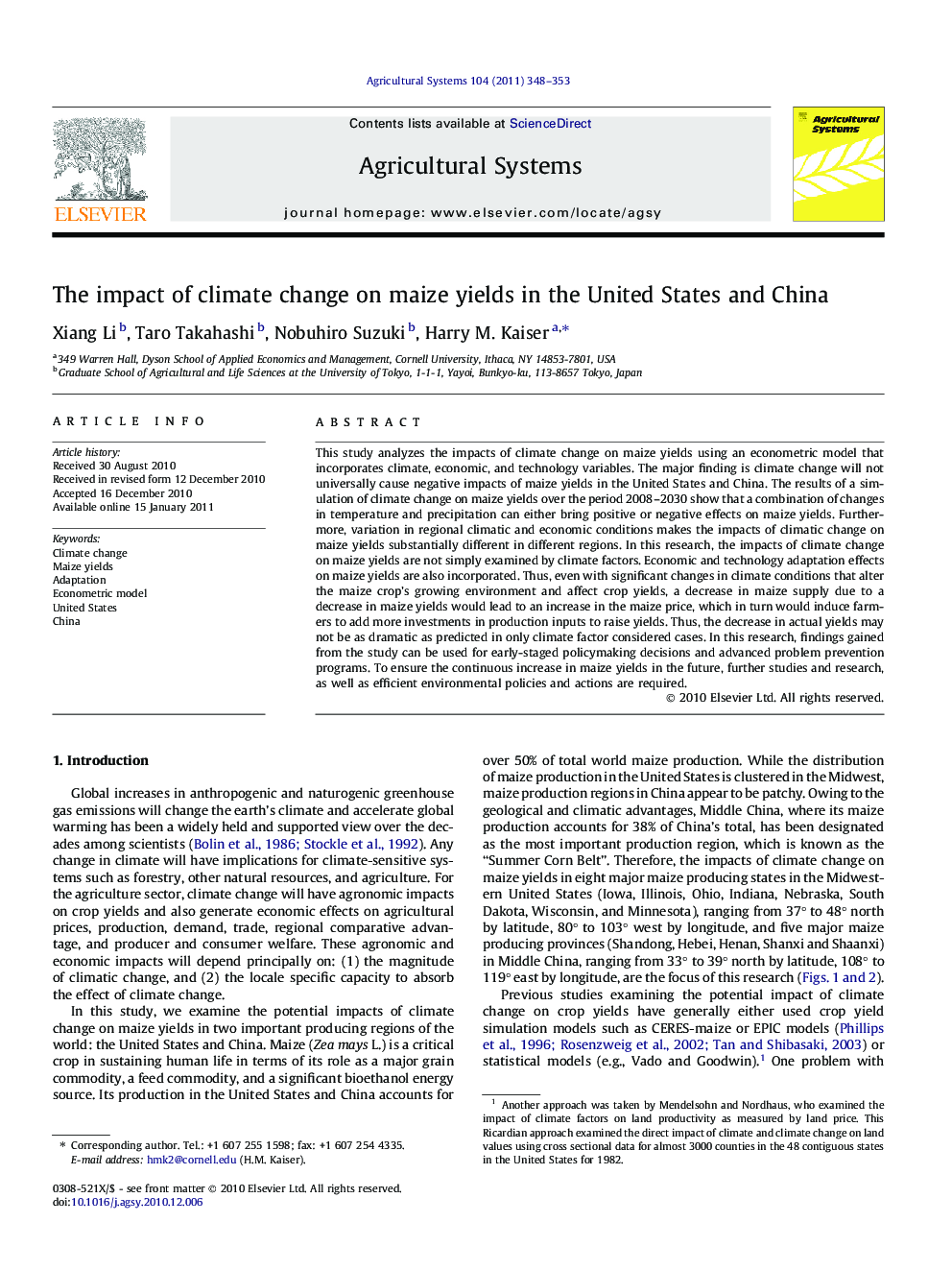| Article ID | Journal | Published Year | Pages | File Type |
|---|---|---|---|---|
| 4491496 | Agricultural Systems | 2011 | 6 Pages |
This study analyzes the impacts of climate change on maize yields using an econometric model that incorporates climate, economic, and technology variables. The major finding is climate change will not universally cause negative impacts of maize yields in the United States and China. The results of a simulation of climate change on maize yields over the period 2008–2030 show that a combination of changes in temperature and precipitation can either bring positive or negative effects on maize yields. Furthermore, variation in regional climatic and economic conditions makes the impacts of climatic change on maize yields substantially different in different regions. In this research, the impacts of climate change on maize yields are not simply examined by climate factors. Economic and technology adaptation effects on maize yields are also incorporated. Thus, even with significant changes in climate conditions that alter the maize crop’s growing environment and affect crop yields, a decrease in maize supply due to a decrease in maize yields would lead to an increase in the maize price, which in turn would induce farmers to add more investments in production inputs to raise yields. Thus, the decrease in actual yields may not be as dramatic as predicted in only climate factor considered cases. In this research, findings gained from the study can be used for early-staged policymaking decisions and advanced problem prevention programs. To ensure the continuous increase in maize yields in the future, further studies and research, as well as efficient environmental policies and actions are required.
Research highlights► Profitability of maize and technological adaptation have significant maize yield impacts. ► Climate change impacts maybe substantially different for China and the United States. ► US maize yields enhanced (hurt) by decreases (increases) in precipitation. ► China maize yields enhanced (hurt) by increases (decreases) in precipitation. ► Technological adaptation has major impact on mitigation of negative effects.
